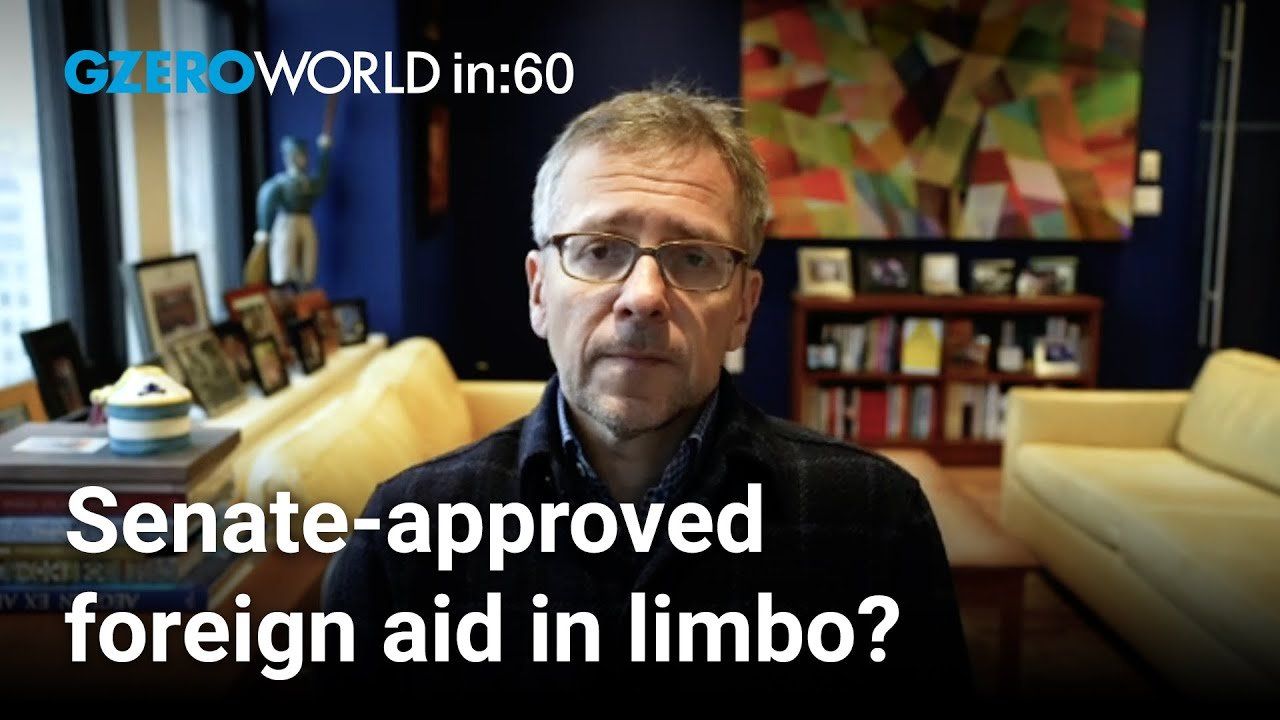Ian Bremmer shares his insights on global politics this week on World In :60.
Will the House pass the Senate-approved aid package for Ukraine and Israel?
Well, certainly not if the Freedom Caucus and the Speaker of the House have anything to say about it. So, I mean, as of today, what the Senate has passed with a lot of Republicans on board looks dead in the House. But of course, the ability to jam the House and force them to accept something or there's no government funding, that is a game of chicken that we've seen before and the Senate may well continue to be ready to play. So it is not dead yet, but aid is looking challenging. And let's be clear, irrespective of what happens for 2024, it's going to be very hard to get any more aid for the Ukrainians going forward. And everybody is deeply aware of that reality.
How likely will Israel proceed with a ground invasion of Rafah in Gaza?
Well, keep in mind, this is right on the border with Egypt. The Egyptians have said that this will blow up their peace agreement with Israel if they decide to go into that space full on with a ground invasion. There's already been some incursions, including one that freed two hostages held by Hamas. So clearly that has huge support from the Israeli population as a whole. The Biden administration has publicly said that they don't want to see a ground invasion, especially because there are no circumstances, at least not set up yet, that the Palestinians who continue to be forced to move and move and move will be safe in this environment. I think that we are very close to a temporary cease fire and more hostages being released. So part of this is pressure from Israel to get that done. If you made me bet right now, I'd say we actually see the deal first. But that is not going to end eventual hostilities from ticking back up between the Israelis and Hamas in Gaza.
What are the wider implications for the Indonesia presidential election?
More state influence over key industries in the economy. Probably a little bit more willingness to blow out the budget from a fiscal perspective. But the likely winner, Prabowo, his vice presidential running mate, is the son of Jokowi, the president of Indonesia. And that implies first geopolitically, very similar orientation to have balanced relations between China economically but the US strategically. I don't see that changing at all. There is still a big question about whether they're going to move the capital. This has been a massive effort with a lot of money that is at play and it's not clear that Prabowo is as convinced that that needs to be the legacy as Jokowi has been. That'll be worth watching very carefully when he becomes president, for those that care. I do, hope you do, too.
- Stalled deal on US border security leaves Ukraine in the lurch ›
- Poll: American support for Ukraine aid is falling ›
- Hard Numbers: March shows solidarity for Israel, US Army overturns convictions of Black soldiers, US inflation cools, EU falls short on artillery shells for Ukraine, House passes funding bill ›
- Zelensky's US trip likely to secure aid for Ukraine ›
- US aid for Israel: How much and since when? ›
More For You
As expected, the Supreme Court struck down the bulk of Donald Trump's sweeping “Liberation Day” tariffs as illegal … and almost nothing changed.
Most Popular
What’s Good Wednesdays™, February 25, 2026
Small businesses at a crossroads
Chris, an Army veteran, started his Walmart journey over 25 years ago as an hourly associate. Today, he manages a Distribution Center and serves as a mentor, helping others navigate their own paths to success. At Walmart, associates have the opportunity to take advantage of the pathways, perks, and pay that come with the job — with or without a college degree. In fact, more than 75% of Walmart management started as hourly associates. Learn more about how over 130,000 associates were promoted into roles of greater responsibility and higher pay in FY25.
Somewhere in the Donbas region, Ukrainian soldier Artem Bondarenko says he hasn’t slept through the night in months as he defends Eastern Ukraine.
In the latest episode of Vladimir Putin and Xi Jinping's hit wellness podcast This Authoritarian Life, we learn how positive communication patterns can break negative cycles in our relationships -- especially our relationships with Iran, Syria, Venezuela, and Cuba. #PUPPETREGIME
